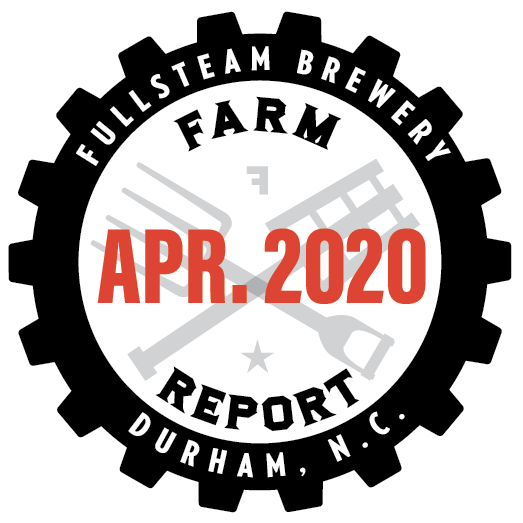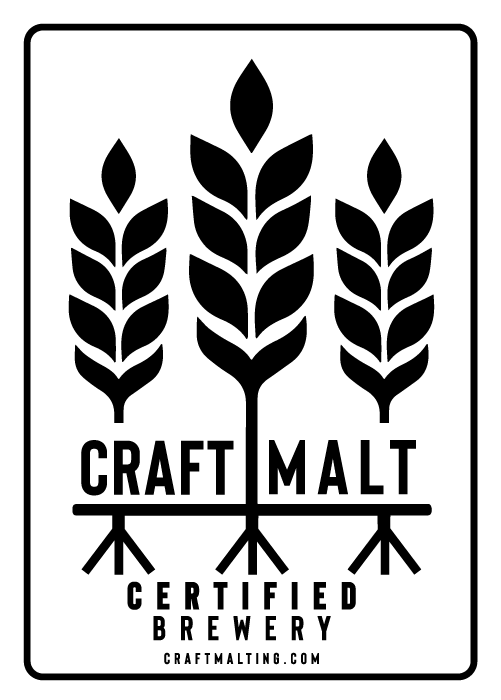
Supporting local food systems matters, now more than ever. We make these rather straightforward reports as our promise to you: transparent, consistent support of farmers, foragers, and agricultural value-added business like North Carolina's three malt houses.
This is our commitment from a business-to-business perspective. So what can you do...especially right now in these dark and uncertain times? You can support a local farm through the act of commerce.
The Carolina Farm Stewardship Association has a Google map of area farms that allow direct, on-farm pickups. We know: it's easy to get hooked on Amazon shipping. Use Amazon for staplers. Support your local farm for sustenance. For you. For them. For the local economy.
FULLSTEAM: APRIL 2020 FARM REPORT
PIONEERING A SOUTHERN BEER ECONOMY
Since launching in 2010, Fullsteam has purchased over $540,000 in Southern-sourced ingredients -- primarily from North Carolina farms. April's Southern farm purchases -- 1.6 tons and over $2,700 in Southern ingredients -- consisted mostly of North Carolina grains for core beers and some specialty one-offs.
Production declines due to COVID-19 had a commensurate effect on our purchases of Southern-farmed ingredients. We are hopeful that the recent increase in demand for packaged beer will provide more opportunities for local purchasing...particularly barley.
Speaking of barley: Fullsteam is a Certified Craft Malt Brewery, committed to sourcing 10 percent or more grains from a certified craft malt house. Learn more about this program at the Craft Maltsers Guild.
SINCE LAUNCHING IN 2010
$540,039.22 Southern-farmed ingredients, totaling
574,096 pounds (287 tons)
APRIL 2020 DETAILS
In April 2020, Fullsteam brewed:
Spending $2,724 on 3,135 pounds of Southern-sourced:
- Epiphany Foundation (2-Row)
- Epiphany N.C. Triticale
- Epiphany Wheat
NOTES
- Fullsteam defines "Southern" as the swath of land from Washington D.C. to Louisiana. That said, North Carolina farms, maltsters, and foragers account for the vast majority (>95%) of these Southern ingredients.
- For the purposes of this report, we only include grains farmed and malted in the South.
- To find each beer's percent local by weight, look for the "% local" designation on the beer label or its entry on our website.
